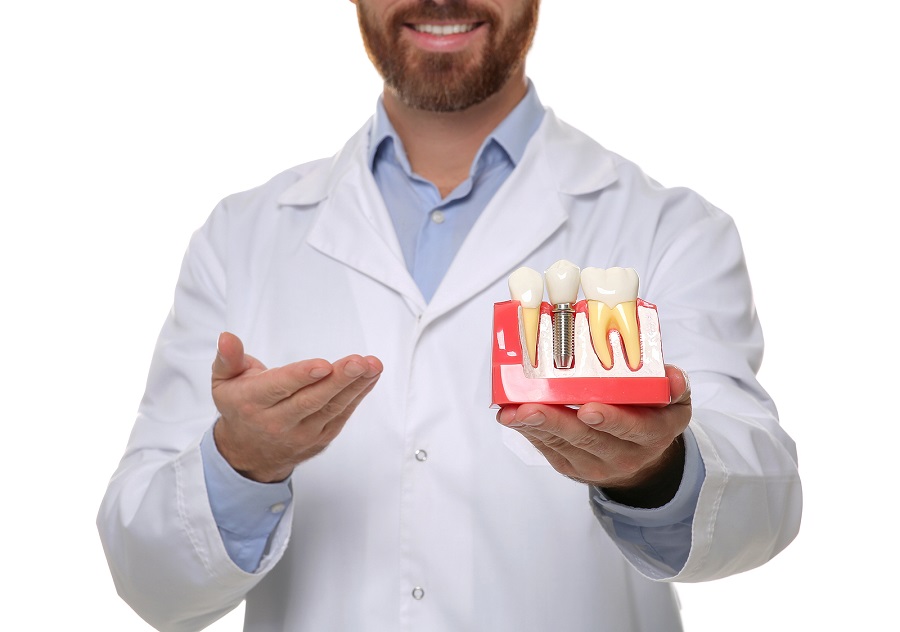Signs Your Dental Implant Needs Immediate Attention
Posted by OC ADVANCED PERIODONTICS on May 8 2025, 09:43 PM

Dental implants are a popular solution for those seeking to replace missing teeth. They offer a permanent, durable option that closely resembles the look and function of natural teeth. However, like any dental procedure, they can come with their own set of challenges. Understanding how to recognize potential issues is essential for maintaining your oral health.
If you’ve recently had an implant placed or are considering one, knowing when something isn’t right is crucial. This knowledge can help prevent complications down the road and ensure your smile remains bright and healthy. Let’s dive into some important signs that might indicate you’re facing an implant emergency in Tustin, CA.
Common Signs of a Healthy Dental Implant
- A healthy dental implant should feel secure and stable. You shouldn’t notice any movement or discomfort while chewing.
- Gums around the implant should have a firm texture and a healthy pink color. Swelling or redness is often an indication that something might be amiss.
- Another sign of good health is the absence of pain. Mild sensitivity can occur, especially shortly after placement, but persistent pain is not typical for well-functioning implants.
- Normal healing after placement usually takes several months. If your recovery feels smooth and you’re experiencing no unusual symptoms, it’s likely your implant is thriving.
- Regular check-ups with your periodontist are essential to ensure ongoing health as well. Professional assessments help catch any potential issues early on before they escalate into more serious problems.
Red Flags That Indicate Your Dental Implant Needs Attention
- If you notice any swelling or tenderness around your dental implant, it’s time to take action. This could indicate infection or irritation that should not be ignored.
- Unusual pain is another major sign. While some discomfort after the procedure is normal, persistent sharp pain may signal complications requiring immediate attention.
- Pay attention to any mobility in the implant itself. A secure fit is crucial for functionality, and if it feels loose, don’t delay seeking help.
- Discoloration of the gums surrounding the implant can also be a warning sign. Healthy tissue should appear pink; redness or darkening might mean trouble brewing beneath the surface.
- An unpleasant taste in your mouth could suggest infection as well. If these symptoms arise, consulting a professional quickly can prevent further issues down the line.
Causes of Dental Implant Complications
Dental implant complications can arise from several factors.
- One major cause is infection. Bacteria can enter the surgical site, leading to peri-implantitis and other issues.
- Another common culprit is insufficient bone density. If your jawbone lacks strength or volume, it may not support the implant effectively. This can lead to movement or even failure of the implant over time.
- Poor oral hygiene also plays a significant role. Neglecting proper dental care increases the risk of gum disease, which negatively impacts implants.
- Additionally, certain medical conditions like diabetes or autoimmune disorders can hinder healing and increase complication risks. Medications that affect bone health might contribute as well.
- Smoking has been linked to higher rates of implant failure due to reduced blood flow and compromised healing processes in gum tissue. Being aware of these causes helps in taking proactive steps for successful dental implants. Contact us to learn more.
Treatment Options for Dental Implant Issues
When facing dental implant issues, timely intervention is key. Treatment options vary based on the specific problem.
- For minor infections, your periodontist may prescribe antibiotics to help clear up the issue and preserve the implant’s integrity. This simple measure can often restore health without extensive procedures.
- If there’s significant bone loss or failed integration, a bone graft might be necessary. This procedure involves adding new bone material to strengthen the foundation of your implant.
- In cases where an implant has become loose or shifted, it may need to be removed altogether. After healing, a replacement could then be placed if conditions permit.
- Regular check-ups play a crucial role in catching these problems early. Your dental team will assess any changes and recommend appropriate solutions tailored to your situation.
Tips for Maintaining the Health of Your Dental Implant
Maintaining your dental implant is essential for long-lasting results.
- Start by practicing good oral hygiene. Brush twice daily with a soft-bristled toothbrush and use fluoride toothpaste to keep the area around your implant clean.
- Flossing is crucial, too. Use an interdental cleaner or floss threader to remove plaque that regular brushing might miss. This helps prevent gum disease, which can jeopardize your implant.
- Regular dental check-ups are non-negotiable. Your periodontist will monitor the health of your implant and surrounding tissues, catching any issues early on.
- Avoid hard foods that could put stress on the implant. Chew carefully and consider using softer alternatives when possible.
- Don’t underestimate the impact of lifestyle choices like smoking. Quitting can significantly improve your overall oral health and enhance the longevity of your dental implants.
Conclusion
Dental implants can significantly enhance your quality of life, providing a durable solution for missing teeth. However, it's crucial to be vigilant about their health. Recognizing the signs that indicate your dental implant might require immediate attention is essential.
If you experience any discomfort, swelling, or unusual movement in the area of the implant, don’t hesitate to seek help. Being proactive can prevent more severe complications down the line.
Understanding what causes these issues can also empower you as a patient. From infections to improper placement, knowing potential triggers allows for better communication with your dental provider.
Regular maintenance and prompt treatment when problems arise are key components in ensuring your dental implant remains functional and healthy. By following guidelines for care and being aware of warning signs, you're taking an active role in safeguarding your oral health.
Remember that if you suspect an issue with your dental implant—especially if you're local to Tustin, CA—don't wait too long before seeking professional advice. Your smile deserves it!
To learn more, visit our OC Advanced Periodontics office at 1076 E 1st St STE F, Tustin, CA 92780. You can also reach us at (714) 730-7877 and schedule an online appointment.
Share On

The Benefits of Dental Implants
Dental implants are a popular solution for those seeking to replace missing teeth. They offer a permanent, durable …

Frequently Asked Questions About Dental Implants
Dental implants are a popular solution for those seeking to replace missing teeth. They offer a permanent, durable …

Why Dental Implants are the Best Solution for Missing Teeth
Dental implants are a popular solution for those seeking to replace missing teeth. They offer a permanent, durable …
